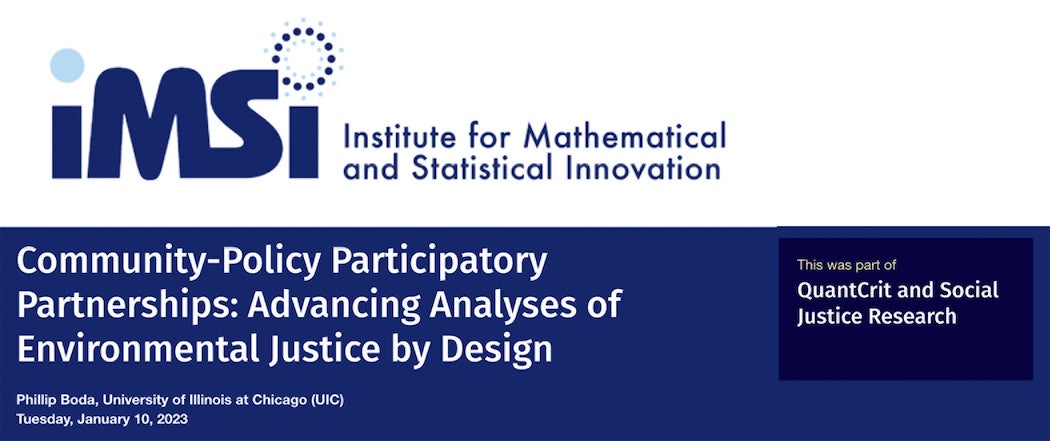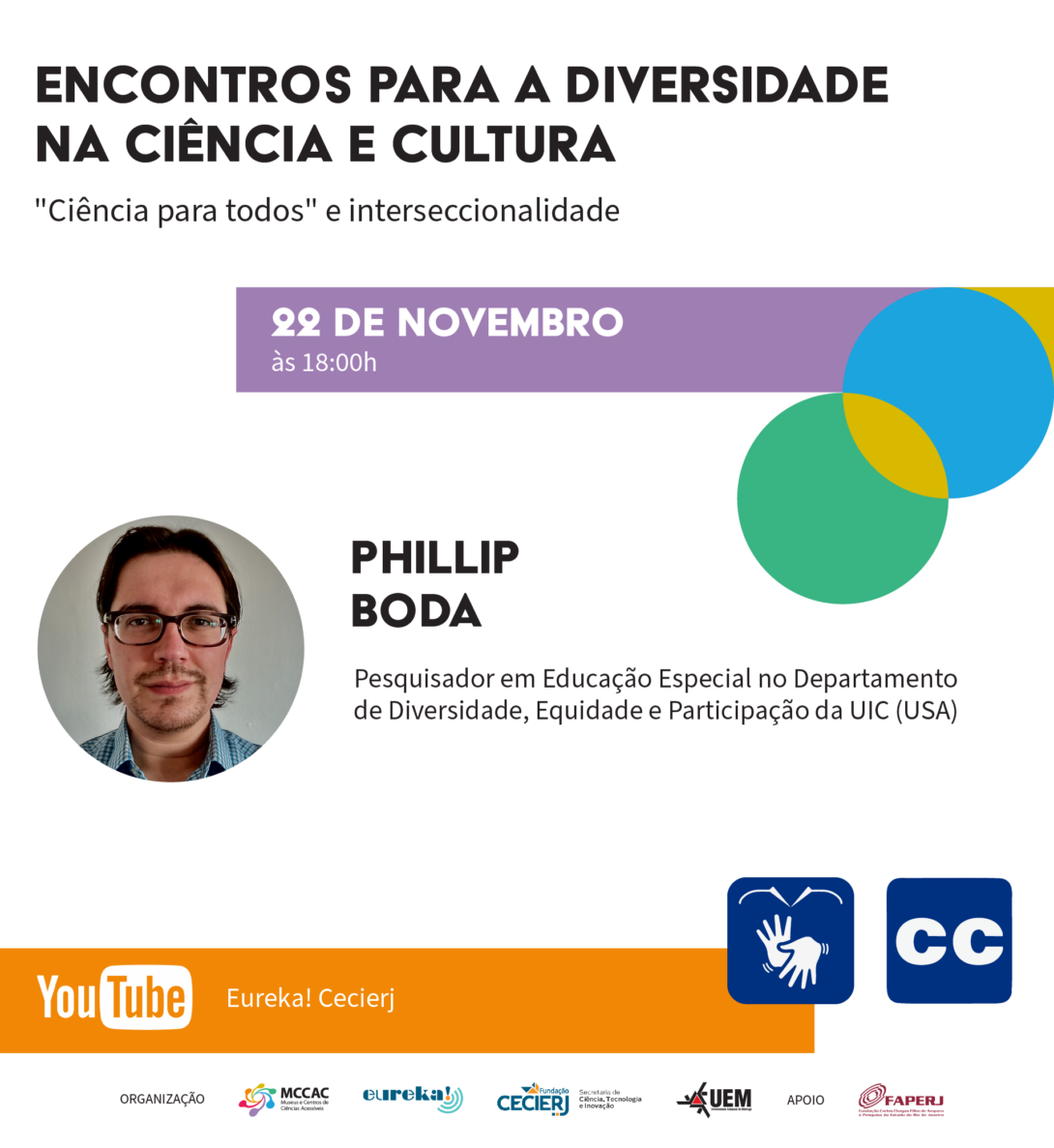
Phillip A. Boda, PhD
Assistant Professor
Director of Curriculum in the School of Public Health
Researcher, Illinois Center of Excellence–Planning a Resilient and Equitable State Using Real-time data (ICE-PRESUR) Team at Discovery Partners Institute (DPI)
Research Fellow, The Gregory S. Fehribach Center
Research Advisor, AAAS’s Entry Point! Program
Pronouns: He/They/Any Pronouns
Contact
Building & Room:
3424 ETMSW
Office Phone:
Please contact me by email.
Email:
CV Download:
Invited Keynote on Community-Policy Participatory Partnerships (C-PPPs), QuantCrit, and Environmental Justice Heading link

Connecting QuantCrit to Environmental Justice Praxis in Southwest Chicago through Community-Engaged Participation in the Policy Process.
Invited Lecture on Science for All and Intersectionality Heading link

CLICK THIS LINK TO SEE THE LECTURE
About
I am a Quare scholar with roots to the Coahuiltecan peoples of America subject to Spanish conquest, and subsequent Eastern European settler colonialism.
--
Ph.D. from Teachers College, Columbia University in Science Education, Phill has worked at the Learning Partnership, the University of California, Berkeley, and Stanford University in Postdoc positions.
Relationship-building with K-16 students, policymakers, local communities, and STEM professionals helps Phill explore questions of historical marginalization (i.e., race, class, disability, and native language) and how it plays a role in understandings of Educational and Environmental Justice.
Their work has explored how researchers analyze youth-, neighborhood-, and city-level data that, when combined with Design-based Research methods, can change the trajectories and landscapes of those historically marginalized by design.
Phill asks: Who decides what is just?
Service to Community
Led an internationally disseminated webinar on inclusive science education, and critical research for NARST: A global organization for improving science teaching and learning through research: Imagining more inclusive and just futures in science education research, policy, and practice
"This webinar is the second in the newly initiated Presidential webinar series. The series is based on my NARST Presidential theme: Unity and Inclusion for Global Scientific Literacy: Invite as a community. Unite as a community. For this installment, I [NARST President Renee Schwartz] invited critical scholar Dr. Phillip Boda (University of Illinois at Chicago) to coordinate the webinar and continue our conversation about “inclusion” as pertains to science and science education.
Science education research has problematized who has historically been able to participate in the scientific enterprise, who may recognize themselves as scientists, and who can pursue science degrees. Pushing on work exploring science identity, access to general education curriculum, and legally-mandated accommodations, this Presidential webinar brings together a critical panel to discuss what inclusion could mean from outside the field. This panel will also imagine more inclusive and just futures in science education research, policy, and practice by positioning difference as a site of possibility. Attendees will be exposed to theories and methodologies that can be applied to more justice-oriented research and toward the development of more transdisciplinary collaborations."
Notable Honors
2015, Emerging Leader in Education, Phi Delta Kappa